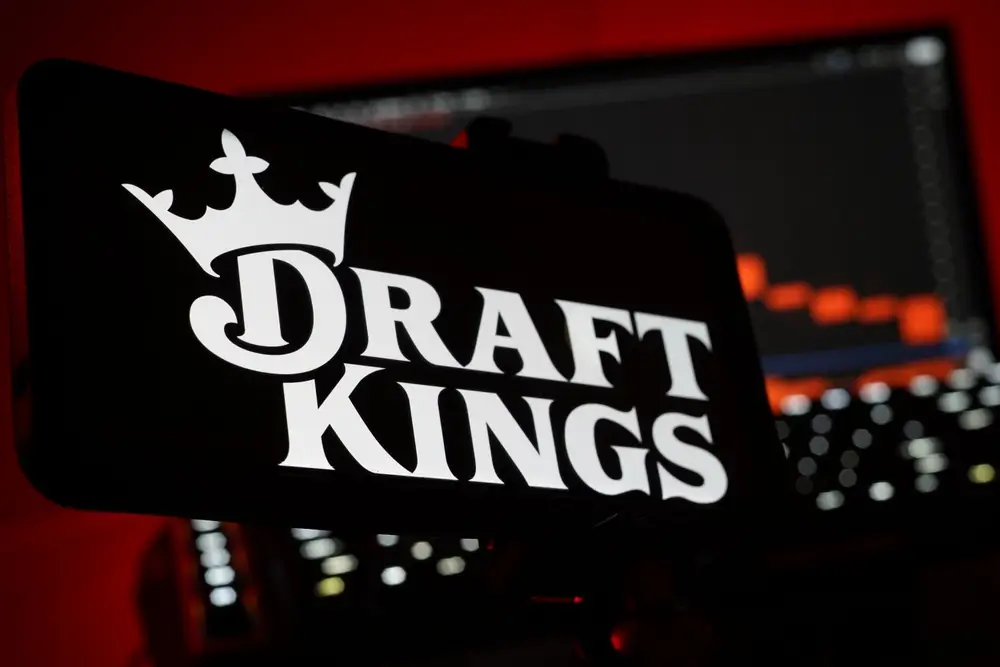The Rise of Prediction Markets: A Threat to Online Sports Betting?
The world of online sports betting is facing a potential shakeup as prediction markets gain traction and challenge the dominance of traditional sportsbooks. The emergence of platforms like Kalshi and Polymarket, backed by major fintech players, has sent ripples through the industry, prompting discussions about the future of sports wagering.
Kalshi's "Combos" and the Market Reaction

In late September, Kalshi, a prominent U.S. prediction market platform, introduced "combos" for its football markets. This feature allows users to combine multiple trades for potentially higher returns, effectively entering the realm of "same game parlays," a popular and lucrative betting option offered by online sportsbooks.
This move by Kalshi had an immediate impact on the stock prices of leading online sports betting operators like DraftKings and Flutter Entertainment (the parent company of FanDuel). Coupled with news of Robinhood's blockbuster trading volume, largely driven by sports event contracts, Flutter and DraftKings experienced an 11% stock dip following the introduction of Kalshi's "combos."
Wall Street's Divided Opinion
The stock drop sparked debate among Wall Street and gaming industry analysts. Some proclaimed that prediction markets pose an existential threat to the online sports betting industry, while others dismissed the dip as an overreaction.
However, the negative trend continued, with DraftKings and Flutter stocks failing to rebound in the following weeks. DraftKings shares fell as much as 6% on October 7 and are down 28% over the past month, while Flutter is down 18%.
Prediction Markets Gain Momentum at G2E
Prediction markets were a prominent topic at the recent Global Gaming Expo (G2E) in Las Vegas. Chris Grove of Eilers & Krejcik, a leading gaming industry research and consulting firm, presented an industry briefing focused on prediction markets, highlighting their disruptive potential.
Grove emphasized that platforms like Kalshi and Polymarket are entering the gaming industry with the support of major fintech companies such as Coinbase, Crypto.com, and Robinhood, as well as prominent investors. These fintech companies possess a significant advantage in terms of user base and access to the U.S. audience compared to most online sportsbooks.
Furthermore, prediction markets currently enjoy unique mindshare, attracting attention from the worlds of politics, news, and sports. Their "narrative momentum" has likely contributed to the unease among online sports betting stock traders. Polymarket's recent announcement of a potential $2 billion investment from Intercontinental Exchange (ICE), the parent company of the New York Stock Exchange, further solidified the legitimacy of prediction markets.
Grove summarized the situation by stating that companies like Coinbase, Kalshi, and Polymarket are benefiting from positive momentum, while DraftKings and others face increasing challenges.
The Dilemma for Sports Betting Operators
Grove highlighted the predicament faced by online sports betting operators, stating that the rapid development of prediction markets demands a reevaluation of likely outcomes by all stakeholders.
The recent stock sell-offs have put DraftKings and Flutter in a difficult position. It remains unclear whether they can satisfy both shareholders and state regulators, who have been increasingly wary of prediction markets and threaten to revoke licenses for other products if sportsbooks venture into this area.
However, waiting for regulatory clarity may prove costly, as prediction markets continue to gain ground. Grove suggests that regulated gambling industry participants need to recognize the growing "institutional support" behind prediction markets, with strong ties to the government and finance industry.
He cautioned that at a certain level of institutional support, other institutions, such as leagues, may feel comfortable participating in prediction markets, potentially even instead of online sportsbooks if regulators force them to choose.
CEOs Remain Confident
Despite the challenges, CEOs of leading online sports betting platforms remain confident in the endurance of traditional sports betting.
DraftKings CEO Jason Robins believes that while prediction market platforms may have value in states without legal sports betting, sportsbooks will ultimately prevail in states where both options exist. He argues that the sportsbook product offers a superior experience compared to prediction markets.
Flutter Entertainment CEO Peter Jackson echoed Robins' sentiment, citing the struggles of the Betfair sports betting exchange in the U.K., where it only captures a small fraction of the market share. Jackson attributed this to difficulties in developing competitive parlay products and offering bonuses.
Legal Challenges Remain a Key Factor
Wall Street analysts have generally maintained or slightly lowered price targets for DraftKings, while Flutter continues to be rated as a "Strong Buy" by many.
However, investment firm Spruce Point Capital Management recently announced that it was shorting DraftKings following an extensive review. The report cited concerns about prediction markets impacting sportsbooks' market share, estimating a potential downside of 35%-60%.
It is important to note that some have questioned the firm's underlying assumptions, including the conflation of trading volume with sports betting handle.
The ongoing legal challenges by states that consider sports event contracts unauthorized sports betting are crucial. These challenges could determine the future growth of prediction markets and their impact on the sports betting industry.
If sports prediction markets are ultimately allowed nationwide, the sports betting industry will likely embrace them more fully. In the meantime, platforms like Kalshi, Robinhood, Crypto.com, and Polymarket have a significant head start in developing these markets, building on their existing user base and attracting new users seeking a sports betting alternative.


No comments:
Post a Comment